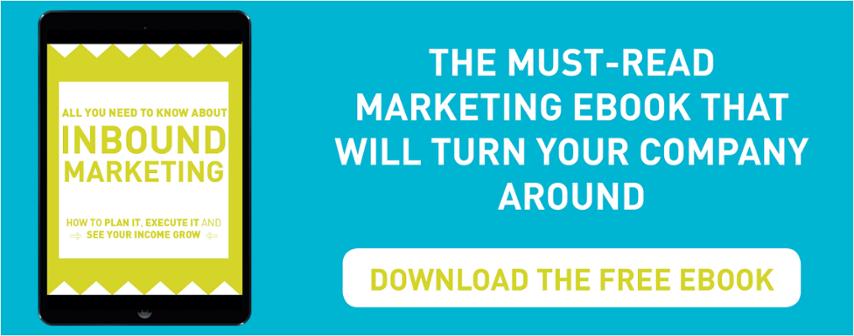Blogging for Business: How to Write Effective Blog Posts


Has it ever happened to you to sit down with the intention of writing a blog post and ending up procrastinating, making random Google searches or checking your social media for hours until you eventually give up?
That was me when I was just starting out in the world of blogging. I was committed to writing one blog post every day, and I had an editorial calendar in place, so I knew what I had to write, but when it actually came to putting my thoughts down in article form, nothing came out. I ended up in a loop of writing a paragraph, re-reading it, deleting it and starting again because it wasn't quite right.
Luckily, there are a few tips on writing a blog that I picked up along the way that have made my life way easier and helped me develop a strategy that attracted more visitors to the blogs I was curating. So, here are my blogging best practices for writing killer content that anyone can follow, even if you are not writers!
Let your personality shine through
The secret of the great success of personal blogs is that they are, well... personal! Bloggers are masters at connecting with readers by simply being themselves, and just because your blog is not a personal one, it doesn't mean you can't replicate their success.
It's fundamental that you find your unique voice and that you don't sound "corporate". Something I always tell everyone is to remember that people like to connect with people, not companies, so the more personal and relatable you are, the better. Don't be afraid to use the pronoun "I" instead of "we" and share your own thoughts, experiences and views. People will want to know more about you and what you have to offer, which will in turn benefit the whole company.
You will also be more memorable and unique, and your voice will certainly stand out from the crowd.
Be educational
You should never use your blog to sell to people. Yes, in the first article of the series I did say that a blog will ultimately drive you more leads and sales, but that is a consequence to you being able to establish a connection with your audience and build trust. Let me tell you: you will never be able to do that if all you do is try and push your products onto people. People will switch off the moment you try and sell them anything.
Your aim is to be very educational and helpful, by talking to people about your industry rather than yourself. Try your best to genuinely be helpful in trying to solve a problem for your readers.
Eric Murphy, experienced inbound strategist, said to imagine yourself going to the butcher's. The first question he will ask you when you enter the shop might be, "How can I help you today?" to which you may reply by saying that you are looking to make a roast dinner for 4. He may then advise you on your options, showing the different pieces of meat you could have for different prices and what the differences in taste and quality will be, so that you can choose the one that suits you best for your needs and budget. Once you have chosen your cut, he may then also give you advice on how much you will need for 4 people and how to cook it so it will be tender and delicious. Now, chances are that next time you need meat you will go back to him rather than another butcher, as he helped you solve your problem of finding the right piece of meat for you and he was very informative. If he had just told you to buy the most expensive one or didn't really take the time to explain what differences there were between the different products, would you have gone out feeling like you made the right choice? Would you have gone back next time?
By giving readers all the tools they need to make an informed decision and solving them a problem that will make their life easier, you will surely start to create trust, and rest assured that the moment they need your services, they will be the ones to come to you without you having to reach out to them.
Be honest
Don't artificially craft your blog posts just to make your company look good. I recently shared a blog post on our Twitter feed written by Hubspot, in which the first sentence was: "We've got a confession to make: We've been making a few rookie SEO mistakes within our own website."
For a company that prides itself for teaching people how to do SEO in the right way and create amazing websites, this is a massive confession. But the result was that the post was shared lots of times on social media, and by reading the comments you notice how readers liked this approach. It's unique, and even though it doesn't necessarily portray the company as perfect, it was honest and people connected with it.
Plus, because the blog post explained exactly what SEO issues they had and how they went about fixing them, it was educational. I was able to get useful information from it, and as a result of this a new "previous" and "next" button appeared at the end of the Purple Frog Blog's listings.
Use visual aids
Yes, quality content is important, but you do need some visual elements to capture your audience's attention and get them to actually read what you wrote.
You should always have one image at the top of your body to draw people in. If it's a particularly long post, you may also want to have a few extra images inside your text to illustrate your points, but remember to only include them if they are actually relevant and helpful.
Use bolding and headings to help people who don't have much time to scan the article and quickly get to the right information they need. Bear in mind that if it's all bold, nothing is bold, so use it wisely to just highlight the key phrases.
White space, believe it or not, is also an important visual element, so make sure that your lines are not too squashed together and there is enough space between the paragraphs and the headings.
Write good quality content
In the end, it all comes down to your content.
I am going to say something that might shock you coming from someone who is just writing a series of articles on how to create content. During an interview to Brent Smart, chief executive of Saatchi & Saatchi NY, he stated: "I hate the word ‘content’. It’s an excuse to make any old crap that we think the world needs, but in most cases the world doesn’t need more content. Just because you could make it doesn’t mean you should make it." Controversially, I completely agree with him and I get where he is coming from. There is so much content online, and according to the Wordpress stats, 56 million new posts are published every month on their platform alone. That is a lot of content, and I can guarantee you that a good majority of it will be really badly done. The issue is that too many companies today keep a blog just because they feel they should, without really giving it any though on why they are writing it and for whom. In that way I have to agree with Brent that bad content is just pollution.
So how can you make sure your content is not rubbish? Make it valuable, targeted and focussed, be different, be really in the mindset that you genuinely want to help and educate readers, and don't start from saying that you want to sell your products.
Research is important, as it will help make your post insightful and more helpful.
Experimenting is also a big part of blogging. The fun of creating content online is that you can just throw any idea out there, see your readers' reaction, analyse it and keep adjusting your style and your strategy. You can experiment with different topics, visual elements, writing styles and even lengths. According to Neil Patel in a blog post published on QuickSprout, if a post is greater than 1,500 words, on average it receives 68.1% more tweets and 22.6% more Facebook likes than a post that is under 1,500 words, so that might also be worth a try!
Conclusions
Blogging is the best place to be if you want to write and you are not yet a writer. It allows you to really be yourself, experiment and express your thoughts and ideas. It shouldn't be taken as a chore, a task that you have to do because everyone is doing it, but it really should be a platform to let your personality, business philosophy and knowledge shine through. Once you start with the question "how can I help you today?" a whole world of possibilities opens up and it will make writing your blog posts easier.
Read more articles in the "Blogging for Business" series:
The 5 Steps to Create an Editorial Calendar
5 Ways to Get Your Blog Noticed
More from Inbound Marketing

Blogging for Business: the 5 steps to Create an Editorial Calendar (Plus Free Template)
One of the main reasons why people decide against starting a blog for their business is because they think: "what the hell am I...
Blogging for Business: 5 ways to get your blog noticed
Today there are 76.5 million blogs on WordPress, with 50k new ones added every day, according to DMR. These statistics make one...








